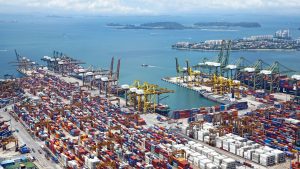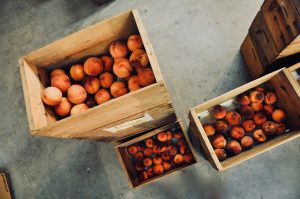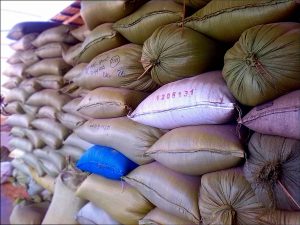Every country is gearing up to fight against the consequences of novel coronavirus with whatever they can. They are ready to face the number of challenges Covid-19 has come up with in the year 2020. And, India is no less affected, therefore, not behind the race to fight back. Despite the procurement experts making all attempts and trying hard and soul to bring the economy back to its stable condition, the food supply chain of India for fruits, vegetable and other regular essentials is facing some of the worst setbacks in the idle of a 21-day lockdown laid down nationally by the Indian government.
While the online grocery stores and food delivery stores are trying their best to hasten up their operations to deliver essential services and products to the masses, the food supply chain on a whole is trying to combat the loss caused due to the pandemic and to stay functional amidst the total lockdown claimed by the central government of India. The number of challenges is ample, and it ranges from lack of manpower to supply the regular essentials to lack of daily supplies coupled with the pressure imposed on temperature and agricultural food storage. Even when the traders and the consumers are fortifying for the worst, it is only the will power of the nation coupled with four factors that are redefining the country’s food supply chain.
Let’s look into the four main factors that are helping the nation to put up with the difficulties of the pandemic while still being productive.
1. Outlaw the export and import operations among countries
With the acceleration of the nation-wide well-being extremity and expediting number contamination from coronavirus since its emergence, the government of most countries has stepped forward to close the national borders and taken a desperate call to prohibit any type of import and export operation among them. The restrictions laid down by the governments of every nation has banned the cargo and passenger movement among the countries. This has not only impacted the sourcing consultants to stop nation-wide operations but, also has heavily crashed upon the economy and trade as industries and other manufacturing operations remain shut amid the lockdown. The complete lockdown has majorly affected the food supply chain and international trade exercises as these are the business sectors primarily dependent on the export and import of edible oils, vegetables, and fruits and other specific processes foods. Not to mention, this has resulted in a heavy loss in the capital due to the complete shutdown of the international supply chain, thereby leading to maximum scarcity for the Indian consumers.
2. A gradual enhancement in the number of perishable storage cells
The supply chain movements are awfully slowed down, rather have become stagnant due to the relatively slow movement of processed, raw, and perishable food items. The sluggish operations of the food supply chain have deeply affected the farmers, already fighting against fear of hammered agricultural production, resulting in the increased demand for adequate conditions and storage space for the wasted produce. This stops here. Apart from the fruits and vegetables, there are certain grains that have relatively less shelf-life that is occupying the warehouse spaces, both for regular and temperature-controlled storage.
3. Awareness of insufficiency among the population
The sourcing consultants are highly aware of the shortage of food supply as farmers choose to stay indoors due to contamination due to the coronavirus. With this already piled up in the mind of the masses, the delays and uncertainty in the last-mile supplies have gushed up the heavy demand for such foods. Additionally, the tendency of people to replenish their food stock has led to the additional pressure build-up in the already stressed food supply chain operations. Besides vegetables and fruits, there are other essential and ready-to-eat food items, for example, bread, that has a comparatively shorter shelf-life. These food items are also scarce as people tend to buy them in bulk and stock up whenever they are available. This is going to be extremely detrimental for the food supply chain in the long run because of the perceived demand.
4. Last-mile delivery bottlenecks
The overall food supply chain is facing a number of bottlenecks due to the fear of spreading the virus and getting contaminated and the lockdown laid down by the government. A portion of the fear is also caused due to the shortage of manpower with last-mile delivery being the major bottleneck. With the bulk lack of manpower, precautions laid down at societies and closure of national and international borders, the restrictions on last-mile delivery have additionally hampered the already stressed situation.
With all these factors playing their major part, the procurement experts are trying to look for innovative ways to fight against the pandemic situation and bringing back the food supply chain in its normal form.
Read: How Supply Chain Complexity Can be Handled in the Food and Beverage Industry



